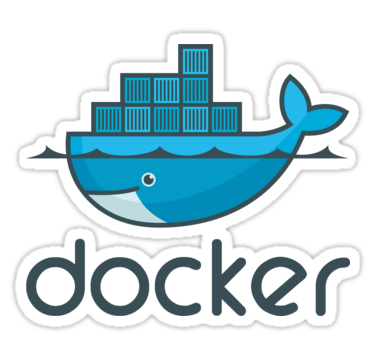What is Online Data Backup – How It Works ?
What is Online Data Backup – How It Works?
“Definition:- Online data backup (remote data backup) is a method of off-site storage in which data is regularly backed up over a network on a remote server, typically hosted by a service provider.” Online data backup has become essentially the same as cloud backup. In the days before the term cloud was used, online backup simply meant backing up to a service provider’s site. Now, that site is almost always some kind of cloud. In this post, we shall also discuss in detail about all the Advantages & Disadvantages of online data backup and also that whether Should you go for Online Data Backup or not?
Customers can pay a service provider to handle backups, with pricing based on capacity, frequency and size of backups; bandwidth; and a number of users. SMBs with lower backup volumes and smaller IT teams are prime use cases for online backup. An enterprise using online backup services might own the off-site server. Organizations can also use traditional backup, software to move data to a public cloud. The process is similar to backing up to disk or tape, except the data goes over the network to the provider’s site. Putting it simply, online data backup is, nowadays, the cheapest and easiest way to back up your important files and store them safely in an encrypted remote server.
Online data backup is far easier and more convenient to use compared to DVDs, external hard drives or USB flash drives because it makes backups automatically, and you can be sure that you have ALWAYS the latest data available when you really need it. After discussing the Advantages & Disadvantages of online data backup you can be sure of whether Should you go for Online Data Backup or not?
What Makes Online Backup Safer?
The real value of an online data backup system is storing your data in a remote location, so your backup copy is safe against any accidents like fire, flooding, lightning, burglary, computer viruses, accidental deletion, and hard drive failure. With online backup, you will always have the latest copy of your data preserved, even if your computer and the entire office is completely swept out by the most devastating F5 tornado.
How online backup works?
Today many people are moving towards online data Backup, and they always want to know What is Online Data Backup – How Online Data Backup Works? So here is an overview of how online data backup actually works or functions. Software as a service (SaaS)-based online backup automatically copies data to another site via a secure connection and allows for on-demand restoration by users for Online data backup. Often, online computer backup is a SaaS product deployed on an appliance or server at the company’s data center.
Online data backup systems typically run on a schedule determined by the purchased level of service. An organization can get started with Online data backup services in multiple ways. The initial online backup can stream over a network connection. Depending on the method used and the amount of data, the initial off-site backup could take days or weeks.

Cloud backup or online data backup providers often offer a cloud seeding option for a customer’s first online backup. Instead of doing the initial backup over the network — which can be time-consuming for large amounts of data — the provider sends a disk appliance to the customer, who places their backup data on the appliance. The customer then ships the appliance back to the Online data backup service provider, who copies the data to its own server. Subsequent customer backups only need to move changed blocks of data over the network.
By frequently or continuously backing up data remotely, the risk of data loss is significantly diminished. With a high-speed connection and a web browser interface, remote files and folders appear as they are stored externally. Hence Online data backup can be very useful.
Advantages and features of Online data backup services:-
Online data backup is a cost-effective alternative to on-premises tape and disk backup, which can take more time and labor. Tape and disk backup are also harder to scale and are more prone to errors that can result in lost data. That’s why people around the world are going for it these days.
- Online data backup within budget and staff constraints;
- optimize on-site data storage by archiving old data off-site;
- meet regulatory requirements and adhere to internal policies;
- enable branch offices to back up easily and reliably with no on-site IT support; and
- allow for quick and reliable data retrieval and restoration, minimizing downtime.
Online data backup customers can also switch service providers more easily than with other forms of backup, so vendor lock-in is not a major concern.
Beyond software and connectivity, an online backup service provider may allow a customer to manage their backups. Customers are advised to test backup and restore capabilities on a consistent basis.
A service-level agreement will outline what a customer expects from their online backup service provider. Among the areas to cover are security, capacity, protection, retention, availability and disaster recovery (DR).
Disadvantages of Online data backup and security concerns:-
- Online backup services can be less expensive at first, but costs related to time and added capacity can add up. Organizations need to ensure they’re backing up data that matters, as unstructured data can drive up capacity, cost and restoration time.
- Capacity planning is a key element; not having enough space with the off-site backup can cause problems with business continuity and DR.
- An administrator will assign access roles and authorization privileges to other users, such as the IT staff responsible for backups. Online backup provides more flexibility because an administrator can give anyone access, but there is the risk of users having too much accessibility.
- Any time an organization backs up a large amount of data over a network — often in the initial phase — it’s going to involve time and bandwidth.
- Since security is a concern with online computer backup, service providers must assure organizations that their data is safe. Most online backup products feature encryption and access control.
- Encryption for data at rest and in transport is important for online backup services. As with any encryption, key management is important. Similar to access control, it is easy to delegate key management, but administrators need to be careful about providing too much access.
- Geographic redundancy is an important factor. A service provider should have at least one duplicate data center, far from the primary site, in case of a disaster.
Online vs. offline backup:-
Unlike an Online data backup, which copies data that is active, an offline data backup — also called a cold backup — is performed when the database is disconnected from the network and is not accessible for updating.
There you go, now you know everything you must know about Online data backup, What is Online Data Backup – How It Works? What Makes Online Backup Safer? Advantages & Disadvantages of online data backup and also that should you go for Online Data Backup or not? The decision is up to you guys.



